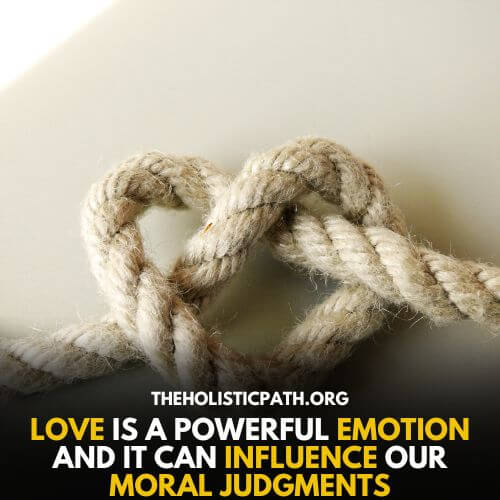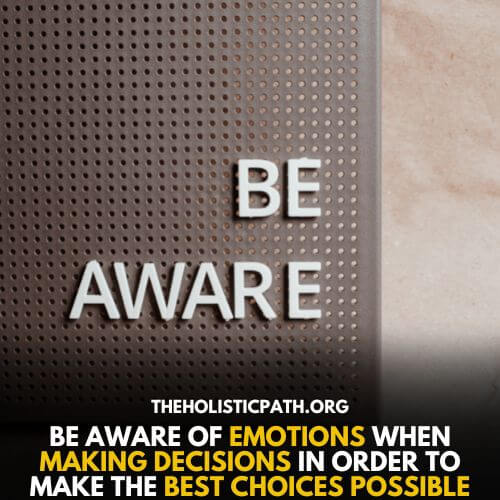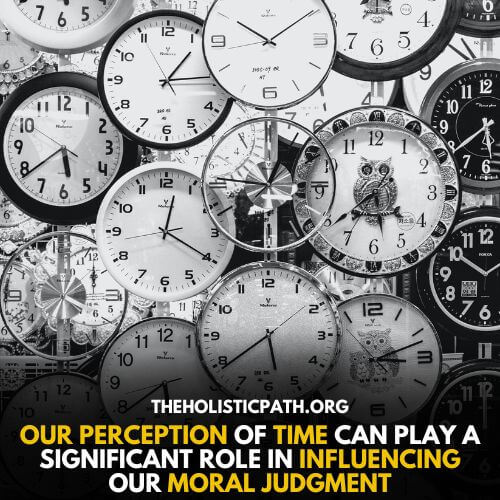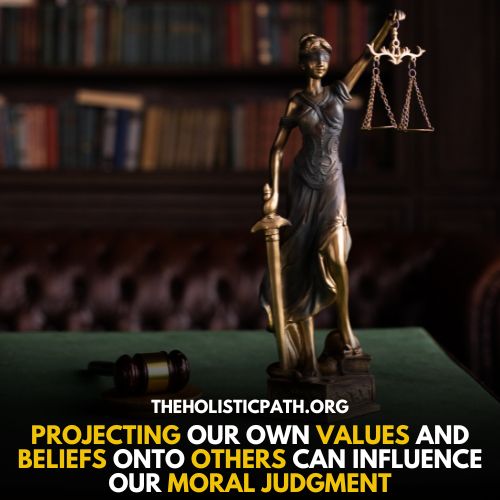We humans like to believe that the judgments we are making are rational and well thought out. But this is not always the case. There is a strong link between emotion and reason in the individual decisions we make.
When we are calm we tend to make more rational and well-thought-out decisions. Whereas if we are in a bad mood because of an unpleasant encounter, our decisions will be affected by these strong emotions.
Here is how can emotions influence moral judgment…
How Do We Make Moral Judgments?
Before we discuss how can emotions influence moral judgments it’s important to understand how we make moral judgments.
When it comes to morality, there are a few schools of thought in terms of how we make judgments. Utilitarianism is one such example, which holds that the best course of action is the one that leads to the most benefits for the most people.
Deontology is another moral theory that holds that certain actions are intrinsically morally good or bad, regardless of their consequences. There are many other theories as well, but these two are some of the more popular ones.
No matter what theory we employ, it seems that we all make moral judgments in some way or another. In order to do so, we need to have a basic understanding of right and wrong. This can be done in a number of ways- through intuition, reason, feelings or emotions, cultural norms, religious teachings, or a combination thereof.
Once we have a general understanding of what is considered morally right and wrong, we can then apply it to specific situations. We may look at the consequences of an action, the intentions behind it, who it affects, and so on. We can also consider our own personal beliefs and values when making moral judgments.

There is no one “correct” way to make moral decisions. What matters most is that we take all factors into account and try to come up with the decision that we believe is best.
What Emotions Influence Our Moral Judgments
When making moral judgments, we may be influenced by a variety of emotions. These can include empathy, guilt, anger, love, and pride.
Here is how each of these emotions influences our moral judgments:
- Empathy is the ability to understand and share the feelings of another person. When we feel empathy for someone, we are more likely to make a moral judgment that is sympathetic to their situation. For example, if we see a homeless person on the street, we may feel more inclined to give them some money if we feel empathy for their situation.
- Guilt is another emotion that can influence our moral judgment. When we feel guilty, we may be more likely to blame ourselves for our actions and make decisions that are morally correct. For example, if we do something that hurts another person, we may feel guilty about it and be more likely to apologize.
- Anger is a strong emotion that can affect our judgment. When we are angry, we are likely to take action against those who have done something wrong. For example, if someone hurts our feelings, we might become angry and then lash out at them verbally or even physically.
- Love is a powerful emotion and it can influence our moral judgments. When we love someone, we may be more likely to forgive them for their wrong actions. For example, if our partner cheats on us, we may be more likely to forgive them if we still love them.
- Pride is also an emotion that can affect our judgment. When we are proud of ourselves, we are likely to view our own actions in a positive light and make decisions that reflect this view. For example, if we achieve something great, we might feel proud of ourselves and then make choices that reflect this feeling (like wearing a badge of honor).

The Role Of Emotions In Making Moral Decisions
How can emotions influence moral judgment… You ask..? When it comes to making moral decisions, emotions play a significant role. Fear and anger can lead to us making immoral decisions, while empathy is key to making sound moral judgments. We need to be aware of our emotions when making decisions in order to make the best choices possible.

It’s important to understand how our emotions work in order to make the most informed decisions. For example, if we’re afraid of something, then fear can cloud our judgment and lead us to make poor choices.
On the other hand, if we can recognize our fear and understand how it’s impacting our judgment, we can work through it and make a decision that’s best for everyone involved.
The same is true of anger. If we’re angry at someone, that anger can often lead us to make destructive choices. However, if we can recognize our anger and understand how it’s impacting our judgment, we can control it and make a decision that is morally correct and not biased against anyone.
How Emotions Influence Moral Judgment-9 Surprising Ways
Here are 9 surprising ways in which emotions influence our moral judgment:
1. A Narrow Mindset:
When an individual experiences strong emotions, the mindset narrows. We can refer to this as ‘tunnel vision’. This can be experienced when a person is feeling strong emotions like anger or fear.
Under the influence of these emotions, our rational thinking stops and we narrow our attention to current thoughts and feelings. This results in us making a decision that is not morally correct.
2. Jumping to Conclusion:
Jumping to conclusions can be a dangerous thing. It can lead you down the wrong path and cause you to make poor decisions. When you jump to conclusions, you’re not taking the time to gather all of the information.
You’re making an assumption based on limited evidence. And, more often than not, these assumptions are wrong. Jumping to conclusions can also influence our moral judgments.
We tend to judge people based on our own experiences and worldview. But, if we jump to conclusions, we’re not giving others a fair chance. We’re making a judgment without really knowing them or their story.
Jumping to conclusions can have a negative impact on our lives and the way we view the world. So next time you’re tempted to jump to a conclusion, take a step back and think about what you really know. You might be surprised at how much your opinion changes.
3. Biased Attention:
When it comes to making moral judgments, it is important to consider all of the relevant information. However, our attention can often be biased, causing us to focus on certain details while neglecting others.
This can have a significant impact on our judgment, leading us to either overestimate or underestimate the importance of certain factors.
For example, if we focus primarily on the victim’s suffering, we may judge the perpetrator more harshly. But if we considered other factors such as their mental state or the circumstances leading up to the event, our judgement might change.
As such, it is important to be aware of how our attention can bias our moral judgments so that we can attempt to correct them. Only by considering all of the relevant information can we hope to make objective and fair judgments.
4. Mood-Congruent Memory:
How we remember past events can have a big impact on how we judge the morality of those events. This is because our memory is not always accurate. It is influenced by our current mood and how we want to feel about ourselves.
For example, if we are feeling guilty about something we did in the past, we are more likely to remember it as being wrong. Similarly, if we are feeling good about ourselves, we are more likely to remember past actions as being morally good.
This phenomenon is known as mood-congruent memory, and it can have a big influence on our moral judgments. Because of this, it is important to be aware of how our current mood may be affecting our memories of past events. Otherwise, we may end up passing judgment on ourselves or others based on inaccurate information.
5. Emotional Contagion:
How emotional contagion influences our moral judgments? It is said that emotional contagion is when a person catches the emotions of another. The emotions can be anything from happiness to sadness or anger.
Emotional contagion is said to happen when we see or even hear about another person’s emotional state and we adopt or imitate their emotions.
6. Background Moods:
Some events can trigger an emotion that is completely relevant to the current situation, it is known as background moods. These background moods can influence our thinking and decision-making.
For example, sad music can bring back the old memories associated with it.
It makes you feel nostalgic and sad even if your surroundings are happy.
7. An urge to blame:
The urge to blame is a strong emotion. When we experience the strong emotion of anger or are hurt we tend to blame someone for us feeling that emotion. By holding others responsible we feel superior. This urge to blame others has a strong influence on our moral judgment.
8. Time perception:
How time perception can influence our moral judgment is an interesting question with far-reaching implications. The way we perceive time can have a profound impact on the decisions we make, both good and bad.

For example, if we perceive time as being limited, we may be more likely to take risks or make impulsive decisions in order to achieve our goals.
On the other hand, if we perceive time as being limitless, we may be more likely to deliberate carefully and consider all possible outcomes before making a decision. In either case, our perception of time can play a significant role in influencing our moral judgment.
9. Projection Bias:
It’s natural to want to see ourselves in a positive light. We want to believe that we’re kind, honest, and good people. Unfortunately, this desire can sometimes lead us astray. One way this happens is through what’s known as projection bias.
Projection bias is when we assume that other people see the world in the same way that we do.
In other words, we project our own values and beliefs onto others. This can influence our moral judgment in a number of ways.

For example, let’s say you meet someone who holds different political beliefs than you do. It’s easy to assume that they’re immoral or ignorant simply because they don’t share your point of view.
However, there’s a good chance that they’re just as ethical and well-informed as you are; they just happen to disagree with you on some issues. The next time you find yourself judging someone else, try to step back and consider whether or not projection bias might be at play.
Are Emotions Necessary For Making Moral Decisions?
When it comes to making moral decisions, many people believe that emotions are necessary. After all, how can we make a decision that’s fair and compassionate if we’re not feeling empathy for the person we’re making the decision about? However, some people argue that emotions are not necessary for making moral decisions.
Those who argue against the use of emotions in moral decisions say that reason and logic should be enough. Because if we’re reasoning through a situation and trying to make the best decision possible, why do we need to feel anything? We can look at the situation objectively and come up with a solution that’s fair for everyone involved.
Others argue that emotions are necessary because they help us to understand the situation better. When we’re feeling empathy for someone, we’re able to see things from their perspective and understand their feelings. This can help us make a more informed decision.
Ultimately, it’s up to each individual to decide whether or not they believe emotions are necessary for making moral decisions. Some people find that they can’t make a decision without feeling empathy for the person involved, while others find that reason and logic are enough.
It’s important to understand both sides of the argument in order to make an informed decision.
How Can We Use Knowledge Of The Role Of Emotions In Morality To Improve Our Lives?
Knowing how can emotions influence moral judgement can be great. Here is how this knowledge can help us:
- We can use knowledge of the role of emotions in morality to help us understand our own emotions and motivations better. This can help us to make more reasoned moral judgments and to behave in more ethical ways.
- We can use the knowledge to understand the emotions and motivations of others better. This can help us to build relationships based on trust and understanding, and to resolve conflicts peacefully.
- It can help us make decisions about how we want to live our lives. We can use this knowledge to choose goals that reflect our values and that will make us happy.
- We can use knowledge of the role of emotions in morality to become more self-aware. We can learn to recognise when our emotions are impacting our judgement unfairly, and we can work to correct this bias.
- We can use this knowledge to be more forgiving towards ourselves and others. We can learn that making mistakes is a natural part of life, and that everyone deserves compassion and understanding.
- It can help us develop empathy for others. We can begin to understand what it might be like to experience the world from someone else’s perspective, and this will help us to build stronger relationships with others.
- We can use knowledge of the role of emotions in morality to become more compassionate people. We can learn that everyone has struggles, and that we should try to help others whenever we can.
- We can use knowledge to become more patient. We can learn that not everything happens immediately, and that sometimes taking a step back is the best way to approach a problem or conflict.
- We can use knowledge of the role of emotions in morality as a tool for growth. We can allow ourselves to be emotionally vulnerable, and through this vulnerability we can learn new things about ourselves and about the world around us.
Conclusion
How can emotions influence moral judgment? Emotion clearly plays a role in influencing our moral judgments. While the reason is important in making ethical decisions, the emotions we feel can often have a stronger impact on our judgment. In some cases, emotion may even override reason, causing us to act against our better judgment.
Therefore, it is important to be mindful of the emotions we are feeling when making moral decisions. By understanding the role emotion plays in influencing our judgment, we can make more ethical choices that take into account both reason and emotion.
